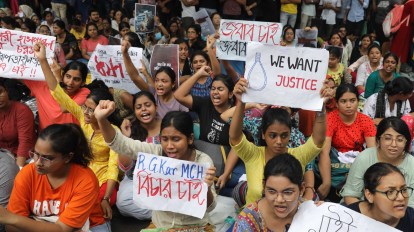Rape is often discussed in terms of statistics, legal definitions, and survivor testimonies. However, there are critical aspects of the conversation that remain underexplored. One of these is the pervasive culture of victim-blaming that persists in many societies. When survivors come forward, they often face skepticism, scrutiny, and judgment about their behavior, clothing, or past actions. This not only perpetuates trauma but also deters others from speaking out.

Source:- news 18
Another overlooked aspect is the emotional and psychological aftermath of rape. While physical injuries may heal, the emotional scars can last a lifetime. Survivors may experience PTSD, anxiety, depression, and a deep sense of isolation. The societal focus on “getting over it” or “moving on” often ignores the complex healing process, which can be long and non-linear.
Source:- news 18
Moreover, discussions around rape frequently fail to address the intersectionality of survivors’ experiences. Women of color, LGBTQ+ individuals, and those from marginalized communities often face additional layers of prejudice and violence. Their voices are frequently marginalized in mainstream narratives, leading to a lack of adequate support and justice.
The systemic failures in addressing rape also merit more attention. From inadequate sex education to the mishandling of cases by law enforcement and the justice system, these institutional shortcomings contribute to the perpetuation of rape culture. Discussions around rape need to go beyond individual cases and examine the broader societal and systemic structures that allow sexual violence to persist.
In conclusion, when we talk about rape, it’s crucial to broaden the conversation. We must address the cultural, emotional, and systemic factors that contribute to and perpetuate sexual violence. Only by doing so can we hope to create a society where survivors are truly supported and empowered.
Share your views in the comments

